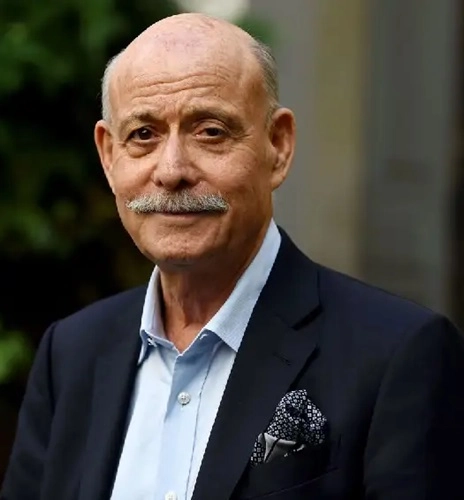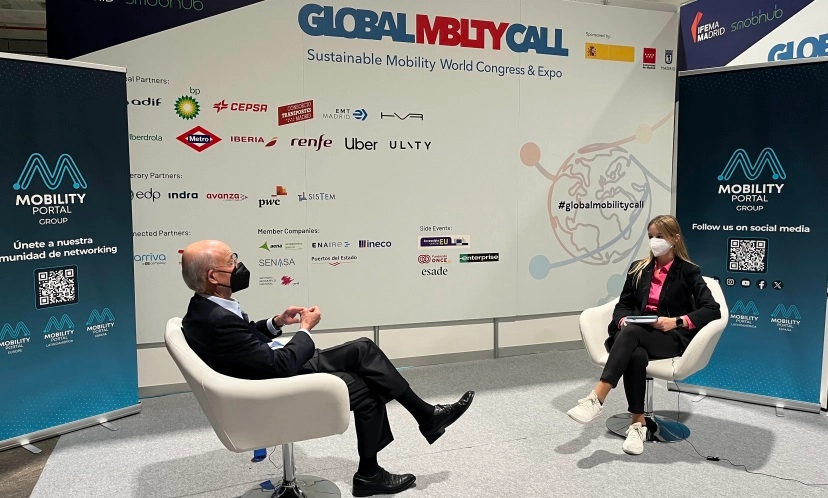Within the framework of the interview series organized by Mobility Portal Group during the Global Mobility Call, Jeremy Rifkin, EU Advisor, discusses the changes that are occurring and will arise as a result of the progress of electromobility.
“We are transitioning towards an emerging civilization of renewable energies and adopting a fresh approach to mobility and logistics, which includes electric vehicles, hydrogen fuel cell transport for long distances, and charging stations,” states Rifkin.

The prices of zero-emission and low-emission cars are becoming increasingly competitive, and indeed, people are increasingly adopting this technology.
In this regard, Rifkin asserts that “electric vehicles will dominate sales by 2030.“
What is the urgency of making this transition?
“This change is the whole dynamic because fossil fuels are a big part of the problem, related to climate change, global warming, and extinction,” emphasizes the EU Advisor.
“The sooner we can leave behind internal combustion transport, not only in cars but also in maritime and air traffic, the better we can adapt,” he adds.
The fact is that a large part of total greenhouse gas emissions comes from transportation.
The consequences of global warming affect much of the world’s population, experiencing daily life disruptions such as floods, droughts, wildfires, tsunamis, among other phenomena.
“Young and old people from all over the world are scared. They no longer recognize the planet they live on,” laments Rifkin.
However, the EU Advisor acknowledges that, instead of being afraid, “we have to see this crisis as an opportunity.”
“The infrastructure, technology, and money are available. We need to free ourselves from fossil fuel interests that are influencing our politicians and move quickly,” he adds.
While some governments are working on initiatives such as electric buses and shared bicycles, many of them are pilot projects.
“These initiatives don’t have the necessary scale. That’s why we need a younger generation to enter government, industry, and academia and start making the transformation because the older generation won’t do it,” explains Rifkin.
Rifkin: “This mobility revolution is part of a larger revolution”
“We are making a great shift from the Industrial Revolution based on fossil fuels, which marked an era of progress, and has died,” states the EU Advisor.
Now, the world is transitioning to new forms of transportation, creating economic opportunities and generating employment in emerging businesses.
However, Rifkin acknowledges that “this mobility revolution is part of a larger revolution.”
For him, the current transition to electromobility is accompanied by three others: communication (based on the Internet), energy (embracing solar and wind power), and water (which brought innovative solutions).
In this sense, Rifkin emphasizes the importance of integrating renewables with zero-emission mobility.
“In 2019, solar and wind became the cheapest in the world, even more so than nuclear, coal, oil, and natural gas. That’s why a significant portion of new energy comes from them,” he explains.
This results in an increasing number of Charge Point Operators (CPOs) choosing to install photovoltaic facilities at their electric vehicle charging stations.
Even companies like PowerGo stand out in the market for their commitment to combining their infrastructure with 100% renewable energy, ensuring a significant reduction in transport CO2 emissions.
“The technologies of the future are advanced green integration systems for electric vehicle charging,” commented Lodovico Cavazza Isolani, Chief Business Development Officer at Powy, to Mobility Portal Europe.
This trend is also observed in home charging.
“The person who installs a charging point, if they don’t have solar panels, is considering the installation of photovoltaics,” analyzes Elis Álvarez González, CEO at Smart Wallboxes.
In their view, users achieve access to an extremely low cost of charging their electric car, combined with tariff benefits.
Who is Jeremy Rifkin?
In addition to serving as an advisor to the EU since the year 2000, he is the president and founder of the Foundation on Economic Trends (FOET), which examines the impact of sociological, technological, environmental, and cultural changes on the global economy and is based in Washington, United States.
He is considered one of the 150 most influential people in the creation of federal political thought, according to the American newspaper The National Journal.








